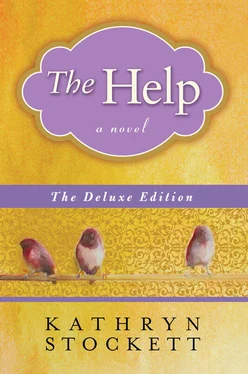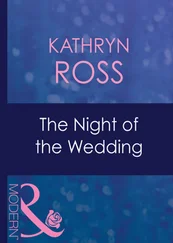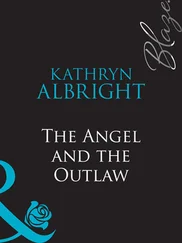It sounds macabre, but when Mother realized that after she’s dead, she won’t be able to tell me what to wear anymore, she came up with this ingenious postmortem system. She’s assuming I’ll never go buy new, unsatisfactory clothes on my own. She’s probably right.
“Still no vomiting yet?” I ask, because it’s four o’clock and Mother’s had two bowls of broth and hasn’t been sick once today. Usually she’s thrown up at least three times by now.
“Not even once,” she says but then she closes her eyes and within seconds, she’s asleep.
ON NEW YEAR’S DAY, I come downstairs to start on the black-eyed peas for good luck. Pascagoula set them out to soak last night, instructed me on how to put them in the pot and turn on the flame, put the ham hock in with them. It’s pretty much a two-step process, yet everyone seems nervous about me turning on the stove. I remember that Constantine always used to come by on January first and fix our good-luck peas for us, even though it was her day off. She’d make a whole pot but then deliver one single pea on a plate to everyone in the family and watch us to make sure we ate it. She could be superstitious like that. Then she’d wash the dishes and go back home. But Pascagoula doesn’t offer to come in on her holiday and, assuming she’s with her own family, I don’t ask her to.
We’re all sad that Carlton had to leave this morning. It’s been nice having my brother around to talk to. His last words to me, before he hugged me and headed back to school, were, “Don’t burn the house down.” Then he added, “I’ll call tomorrow, to see how she is.”
After I turn off the flame, I walk out on the porch. Daddy’s leaning on the rail, rolling cotton seeds around in his fingers. He’s staring at the empty fields that won’t be planted for another month.
“Daddy, you coming in for lunch?” I ask. “The peas are ready.”
He turns and his smile is thin, starved for reason.
“This medicine they got her on . . .” He studies his seeds. “I think it’s working. She keeps saying she feels better.”
I shake my head in disbelief. He can’t really believe this.
“She’s gone two days and only gotten sick once . . .”
“Oh, Daddy. No . . . it’s just a . . . Daddy, she still has it.”
But there’s an empty look in Daddy’s eyes and I wonder if he even heard me.
“I know you’ve got better places to be, Skeeter.” There are tears in his eyes. “But not a day passes that I don’t thank God you’re here with her.”
I nod, feel guilty that he thinks it’s a choice I actually made. I hug him, tell him, “I’m glad I’m here too, Daddy.”
WHEN THE CLUB REOPENS the first week of January, I put my skirt on and grab my racquet. I walk through the snack bar, ignoring Patsy Joiner, my old tennis partner who dumped me, and three other girls, all smoking at the black iron tables. They lean down and whisper to each other when I pass. I’ll be skipping the League meeting tonight, and forever, for that matter. I gave in and sent a letter three days ago with my resignation.
I slam the tennis ball into the backboard, trying my best not to think about anything. Lately I’ve found myself praying, when I’ve never been a very religious person. I find myself whispering long, never-ending sentences to God, begging for Mother to feel some relief, pleading for good news about the book, sometimes even asking for some hint of what to do about Stuart. Often I catch myself praying when I didn’t even know I was doing it.
When I get home from the club, Doctor Neal pulls up behind me in his car. I take him back to Mother’s room, where Daddy’s waiting, and they close the door behind them. I stand there, fidgeting in the hall like a kid. I can see why Daddy is hanging on to his thread of hope. Mother’s gone four days now without vomiting the green bile. She’s eating her oatmeal every day, even asked for more.
When Doctor Neal comes out, Daddy stays in the chair by the bed and I follow Doctor Neal out to the porch.
“She told you?” I ask. “About how she’s feeling better?”
He nods, but then shakes his head. “There’s no point in bringing her in for an X-ray. It would just be too hard on her.”
“But . . . is she? Could she be improving?”
“I’ve seen this before, Eugenia. Sometimes people get a burst of strength. It’s a gift from God, I guess. So they can go on and finish their business. But that’s all it is, honey. Don’t expect anything more.”
“But did you see her color? She looks so much better and she’s keeping the food—”
He shakes his head. “Just try and keep her comfortable.”
ON THE FIRST FRIDAY OF 1964, I can’t wait any longer. I stretch the phone into the pantry. Mother is asleep, after having eaten a second bowl of oatmeal. Her door is open so I can hear her, in case she calls.
“Elaine Stein’s office.”
“Hello, it’s Eugenia Phelan, calling long-distance. Is she available?”
“I’m sorry, Miss Phelan, but Missus Stein isn’t taking any calls regarding her manuscript selection.”
“Oh. But . . . can you at least tell me if she received it? I mailed it just before the deadline and—”
“One moment please.”
The phone goes silent, and a minute or so later she comes back.
“I can confirm that we did receive your package at some point during the holidays. Someone from our office will notify you after Missus Stein has made her decision. Thank you for calling.”
I hear the line on the other end click.
A FEW NIGHTS LATER, after a riveting afternoon answering Miss Myrna letters, Stuart and I sit in the relaxing room. I’m glad to see him and to eradicate, for a while, the deadly silence of the house. We sit quietly, watching television. A Tareyton ad comes on, the one where the girl smoking the cigarette has a black eye— Us Tareyton smokers would rather fight than switch!
Stuart and I have been seeing each other once a week now. We went to a movie after Christmas and once to dinner in town, but usually he comes out to the house because I don’t want to leave Mother. He is hesitant around me, kind of respectfully shy. There is a patience in his eyes that replaces my own panic that I felt with him before. We don’t talk about anything serious. He tells me stories about the summer, during college, he spent working on the oil rigs in the Gulf of Mexico. The showers were saltwater. The ocean was crystal clear blue to the bottom. The other men were doing this brutal work to feed their families while Stuart, a rich kid with rich parents, had college to go back to. It was the first time, he said, he’d really had to work hard.
“I’m glad I drilled on the rig back then. I couldn’t go off and do it now,” he’d said, like it was ages ago and not five years back. He seems older than I remember.
“Why couldn’t you do it now?” I asked, because I am looking for a future for myself. I like to hear about the possibilities of others.
He furrowed his brow at me. “Because I couldn’t leave you.”
I tucked this away, afraid to admit how good it was to hear it.
The commercial is over and we watch the news report. There is a skirmish in Vietnam. The reporter seems to thinks it’ll be solved without much fuss.
“Listen,” Stuart says after a while of silence between us. “I didn’t want to bring this up before but . . . I know what people are saying in town. About you. And I don’t care. I just want you to know that.”
My first thought is the book. He’s heard something. My entire body goes tense. “What did you hear?”
“You know. About that trick you played on Hilly.”
I relax some, but not completely. I’ve never talked to anyone about this except Hilly herself. I wonder if Hilly ever called him like she’d threatened.
Читать дальше












